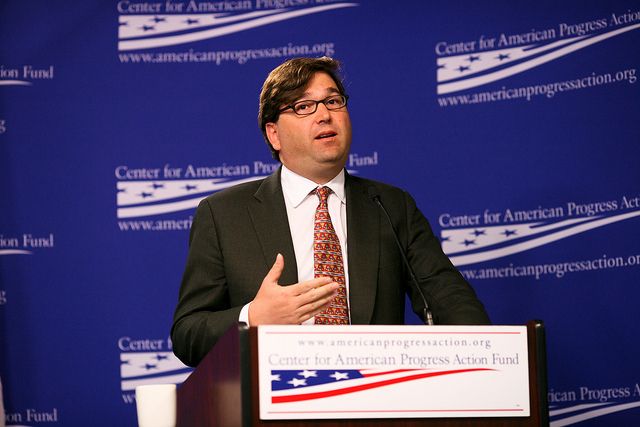It was reported yesterday that President Obama will appoint his longtime adviser, Jason Furman, as chair of the White House’s Council of Economic Advisers. Furman will replace Alan Kreuger, who has been Obama’s chief economist since November 2011.
Furman has been principal deputy on the National Economic Council since January 2009. Before that, he left the Brookings Institution in 2008 to join the Obama campaign. While at Brookings, Furman wrote a lot about health care reform, which became one of the pillars of Obama’s first term.
But a paper that Furman co-authored in October 2007 might give some clues as to what we can expect from Obama’s new economic braintrust on the development and policy front. “A Hand Up: A Strategy to Reward Work, Expand Opportunity, and Reduce Poverty” examined, as the clock ticked down on the Bush administration, ways to close the income inequality gap and better equip those below the poverty line to rise above it.
Working fulltime at minimum wage does not provide enough income for families digging themselves out of poverty. Policies, Furman wrote, “should provide a more robust safety net and a set of social insurance policies to help people rebound if they do experience economic hardship, and reduce the likelihood of their falling below a certain economic level at any point.”
Expanding Earned Income Tax Credits (EITCs), Furman argued, would reward work and, in turn, help families stay afloat while they worked their way back.
EITCs are intended to keep more money in the pockets of those struggling. It’s a refundable tax credit for low- and moderate-income workers — especially those with children — designed to keep people with low-paying jobs in the workforce. A good deal of low-paying jobs don’t pay income taxes, but still have to pay for Medicare and Social Security. EITCs, which were introduced in 1975, help compensate for that, allowing workers to keep a much larger chunk of their paycheck.
You keep more of what you make, and that extra money can make a world of difference.
The federal government expanded the payments as part of the 2009 stimulus — from 40 percent to 45 percent for working families with three or more children — and organizations have argued for the increase to be extended for larger families through 2013. An August 2012 Times Magazine article highlighted Furman’s insistence on ramping up the anti-poverty measures in the 2009 Recovery Act.
Furman has probably had Obama’s ear since he joined the campaign as an adviser in 2008. Now he’s going to be in his ear as the chief economist shaping policies that could have a lasting effect on everything from tax code to how much money is doled out for economic development and affordable housing. If Furman’s writing on EITC — something even Reagan called “the best anti-poverty, the best pro-family, the best job creation measure to come out of Congress” — is any indication, he’ll have the lower and middle classes at the center of the conversation.
The Equity Factor is made possible with the support of the Surdna Foundation.

Bill Bradley is a writer and reporter living in Brooklyn. His work has appeared in Deadspin, GQ, and Vanity Fair, among others.




_600_350_80_s_c1.jpg)












